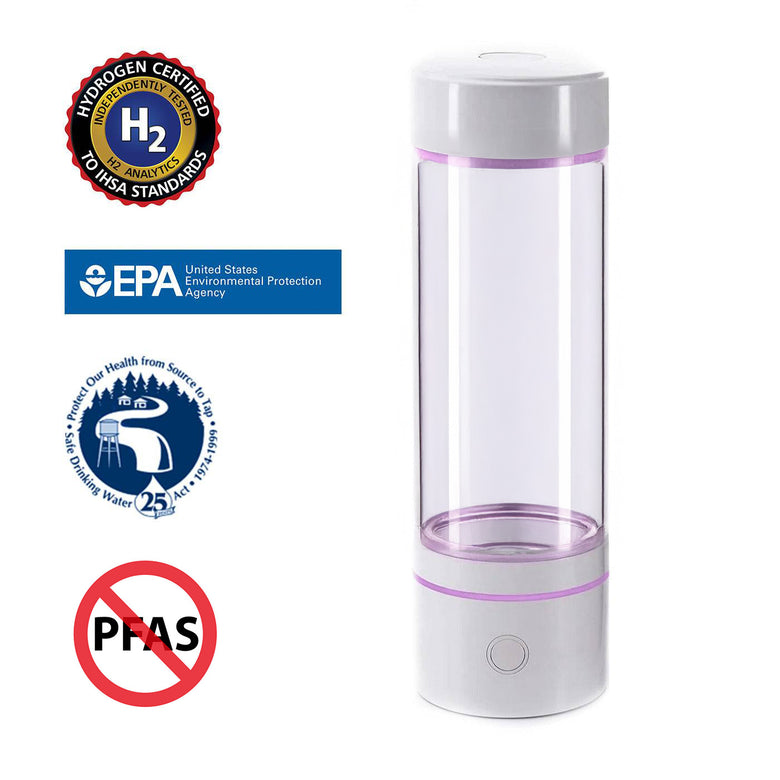The Ancient Gods and Hydrogen Water: Unraveling the Elixir of Life
Updated
John Smith
Researcher & Writer
Our Commitment to Accuracy and Objectivity
Ocemida is committed to delivering reliable and unbiased information. Our editorial team, comprised of experienced editors and medical experts, meticulously reviews every article and guide to ensure the content is accurate, up-to-date, and free from bias.
Rigorous Fact-Checking Process
To uphold the highest standards of accuracy, we adhere to the following fact-checking guidelines:
Trusted Sources: We only cite reputable sources, such as peer-reviewed journals, government reports, academic and medical associations, and interviews with credentialed healthcare professionals.
Evidence-Based: All claims and data are supported by at least one credible source. Each article includes a comprehensive bibliography with full citations and links to the original sources.
Internal Linking: While we may include internal links to other relevant Ocemida pages for better navigation, these links are never used as primary sources for scientific information.
Expert Review: A member of our medical or scientific expert team provides a final review of the content and cited sources for all articles and product reviews related to medical and health topics.
By following these rigorous standards, Ocemida strives to provide readers with reliable and informative content.
Share with a friend
Throughout human history, one dream has remained constant across civilizations: the desire to extend life indefinitely. This timeless aspiration has manifested in countless myths, legends, and scientific pursuits. Today, we'll explore how ancient wisdom and modern research intersect in unexpected ways.
Ancient Tales of Divine Elixirs
The story begins in ancient India with the magnificent tale of Samudra Manthan (The Churning of the Ocean of Milk), recorded in sacred Vedic texts like the Bhagavata Purana. Picture a vast cosmic ocean of milk, where deities (devas) and demons (asuras) set aside their eternal rivalry to obtain the secrets of immortality. They transform the mighty Mount Mandara into a churning rod and convince the great serpent Vasuki to serve as their churning rope. As the ocean churns, fourteen precious treasures emerge, but none more valuable than Amrita, the divine nectar of immortality.
The symbolism here is profound: the cooperation between opposing forces (devas and asuras) represents the delicate balance needed in the pursuit of transcendent knowledge. The churning itself mirrors the persistent effort required in any great endeavor, while the ocean of milk represents the vast potential of the universe to yield its secrets to those who seek them properly.
Moving westward to ancient Greece, we find similar themes in the concepts of Ambrosia and Nectar. These divine substances weren't just food and drink – they were the source of the gods' immortality and eternal youth. The Greeks believed these substances flowed through the gods' veins instead of blood, granting them their divine nature. When mortals like Tantalus attempted to steal these divine substances, they faced terrible consequences, highlighting the Greeks' belief that immortality was the exclusive domain of the divine.
The Science Behind Modern "Elixirs"
Fast forward to the present day, where science has taken up the ancient quest for longevity, albeit through different means. Hydrogen water represents an fascinating modern parallel to these ancient elixirs. But how does it work?
Molecular hydrogen (H₂) dissolved in water acts as a selective antioxidant, targeting particularly harmful free radicals while leaving beneficial ones intact. This selectivity is crucial because some free radicals play important roles in cell signaling and immune response. The parallel to ancient wisdom is striking: just as the churning of the ocean required balance between opposing forces, the effectiveness of hydrogen water lies in its ability to maintain cellular equilibrium rather than eliminating all free radicals indiscriminately.
Recent research has shown that hydrogen water may offer several potential benefits:
- Reduced oxidative stress at the cellular level
- Improved mitochondrial function
- Enhanced cellular energy production
- Potential anti-inflammatory effects
- Possible neuroprotective properties
The Bridge Between Past and Present
What makes this comparison between ancient elixirs and modern innovations particularly fascinating is not just their shared promise of enhanced vitality, but the underlying principles they represent. Both ancient and modern approaches recognize that:
- The pursuit of longevity requires understanding fundamental forces of nature
- Balance is crucial – whether between divine and demonic forces in mythology or between oxidative and antioxidative processes in biology
- The source of vitality often comes from seemingly simple substances transformed through special processes
The key difference lies in methodology. Where ancient societies sought immortality through divine intervention and magical elixirs, we now pursue longevity through scientific understanding of cellular processes, genetic factors, and biochemical interactions.
Looking Forward
While we haven't discovered true immortality, our scientific understanding continues to advance. Modern research into substances like hydrogen water, while more modest in its claims than ancient elixirs, represents humanity's enduring quest to extend and improve life. The parallels between ancient myths and modern science remind us that while our methods have changed, our fundamental aspirations remain remarkably consistent.
Perhaps the most valuable lesson we can draw from this comparison is that the pursuit of longer, healthier life has always been intertwined with wisdom, balance, and understanding of natural processes. Whether through ancient spiritual practices or modern scientific inquiry, humanity continues to seek not just longer life, but better understanding of life itself.
Recommended Product










































